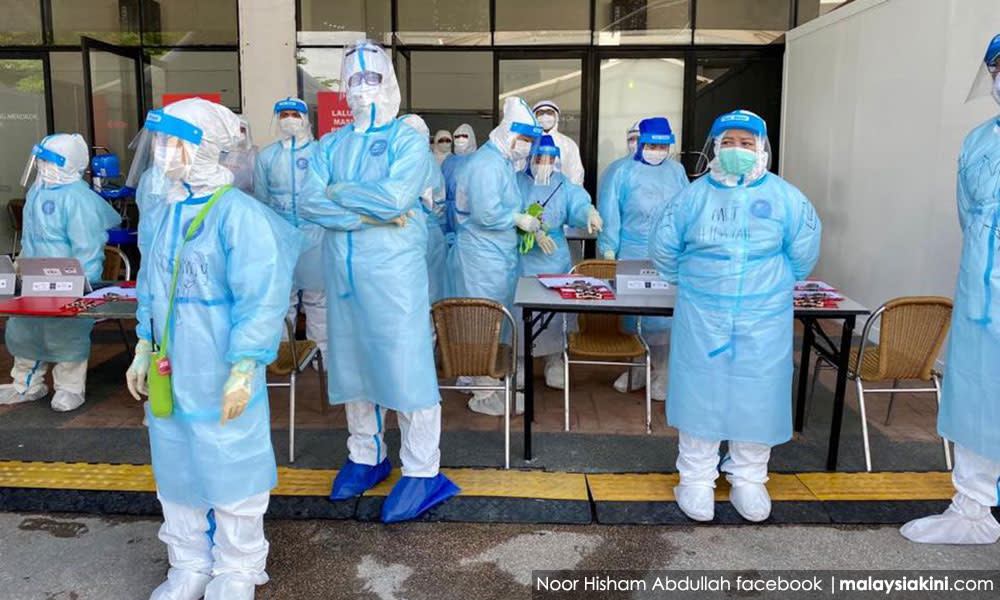Increase public health allocation, urge Anwar and former deputy health minister

Allocation for public health should be increased in the face of the prolonged Covid-19 pandemic, said PKR president Anwar Ibrahim and former deputy health minister Lee Boon Chye.
“Public health measures have proven to be effective in ‘flattening the curve’ - these include isolation and quarantine of cases and contacts, physical distancing, the use of face masks and hand or environmental sanitation.
“Whilst the public health staff of the Health Ministry has done a sterling job in managing the pandemic under the guidance of director-general Dr Noor Hisham Abdullah, we believe that more can be done with appropriate political and government support.
“Allocation for public health as well as relevant personnel should be increased substantially in order to deal with a prolonged crisis,” Anwar and Lee said in a joint statement today.
They pointed out that the current allocation for public health in Budget 2020 is RM5.66 billion out of a total Health Ministry operating budget of RM27.9 billion.
As for human resources, 78,266 staff are in public health out of a total of 267,578 Health Ministry staff, they said.
“We would advocate an increase of 20 percent to both operating expenditures as well as staffing levels for public health over the next two years.
“The irrefutable fact is that the pandemic will not end soon, they said, as sporadic cases and outbreaks will continue to occur with a possibility of the virus becoming endemic,” the statement said.
“Another fact is that a strong public health response is the keystone to a strong economic recovery and that these two are not mutually exclusive.
“Strengthening our public health will allow us to prevent outbreaks, as well as initiate control measures early when cases are identified.
“Although there is increasing use of digital tracking solutions, we must be cognisant of the fact that these are far inferior to a dedicated team for contact tracing who can appropriately advise both the general public and businesses,” they said.
Anwar and Lee also said they believe more testing should be conducted as Malaysia currently has spare testing capacity.
The Health Ministry should utilise this opportunity for sentinel testing and target more vulnerable groups such as those in elderly care facilities, prisons and blue-collar industries, they said.
They also pointed out that Covid-19 is not the only infectious disease affecting Malaysia.
Among the other infectious diseases plaguing Malaysia is tuberculosis which affects more than 20,000 individuals annually while dengue continues to be a problem with over 130,000 cases in 2019.
Anwar and Lee said it is also possible for other novel respiratory viruses to become threats in the future.
Meanwhile, aside from infectious disease, Malaysia has “unenviable levels” of non-communicable diseases, they said.
Approximately 8.1 percent of Malaysia’s adult population – about 1.7 million – have all three risk factors for diabetes, hypertension and high cholesterol.
The 2019 National Health and Morbidity Survey also revealed that more than half of adults have abdominal obesity with more than a fifth of children having growth stunting, which points to a nutritional epidemic that needs to be addressed urgently.
“As the government struggles to provide a cohesive exit strategy for the Covid-19 pandemic, there will be the temptation to reduce allocation in the delayed Budget 2021 and the 12th Malaysia Plan.
“We urge the government to remember that money spent on improving our public health should be viewed as an investment and not a cost, as it is only by improving and protecting the health of our rakyat will we be able to overcome the health and economic challenges facing our nation,” Anwar and Lee said.


